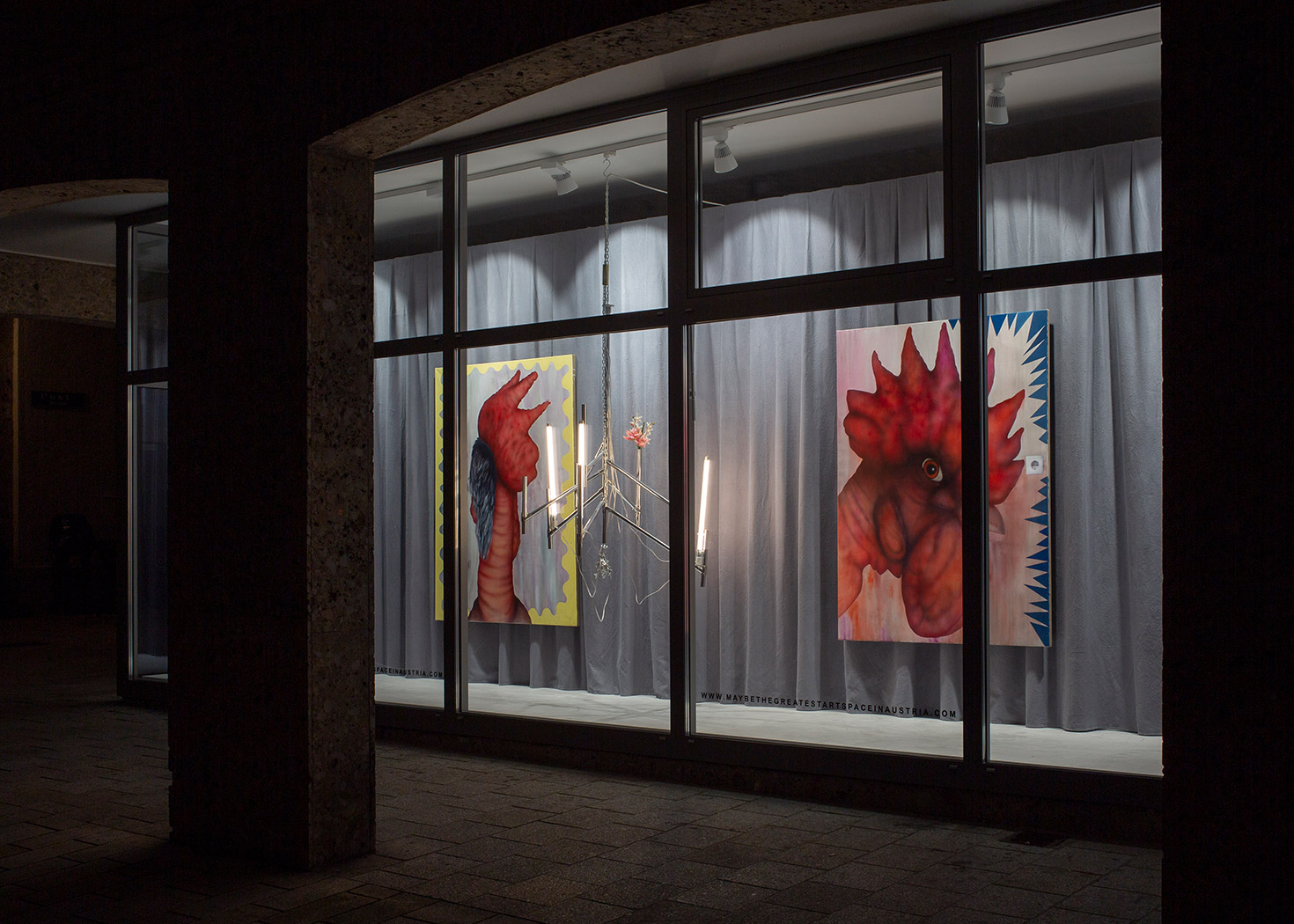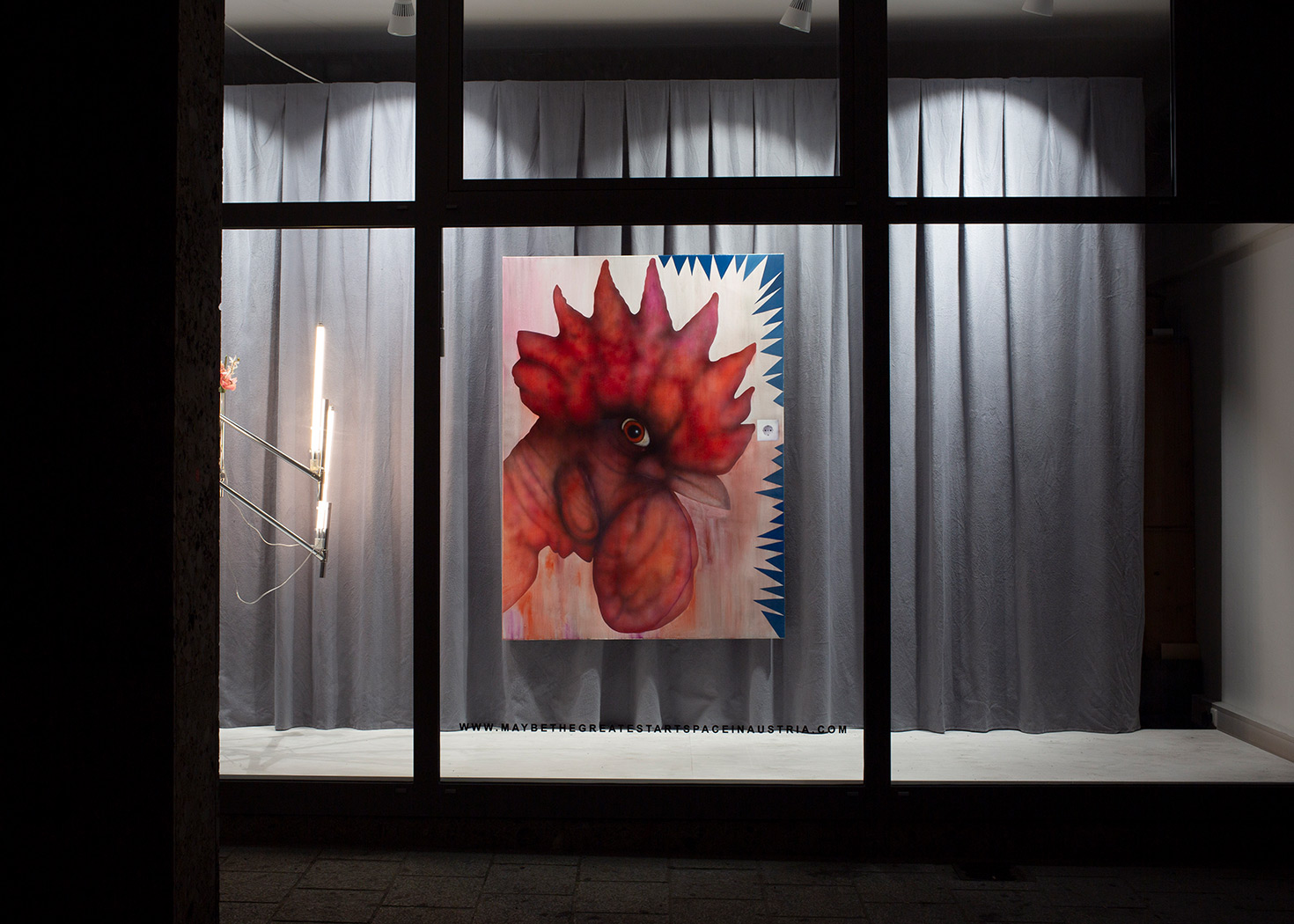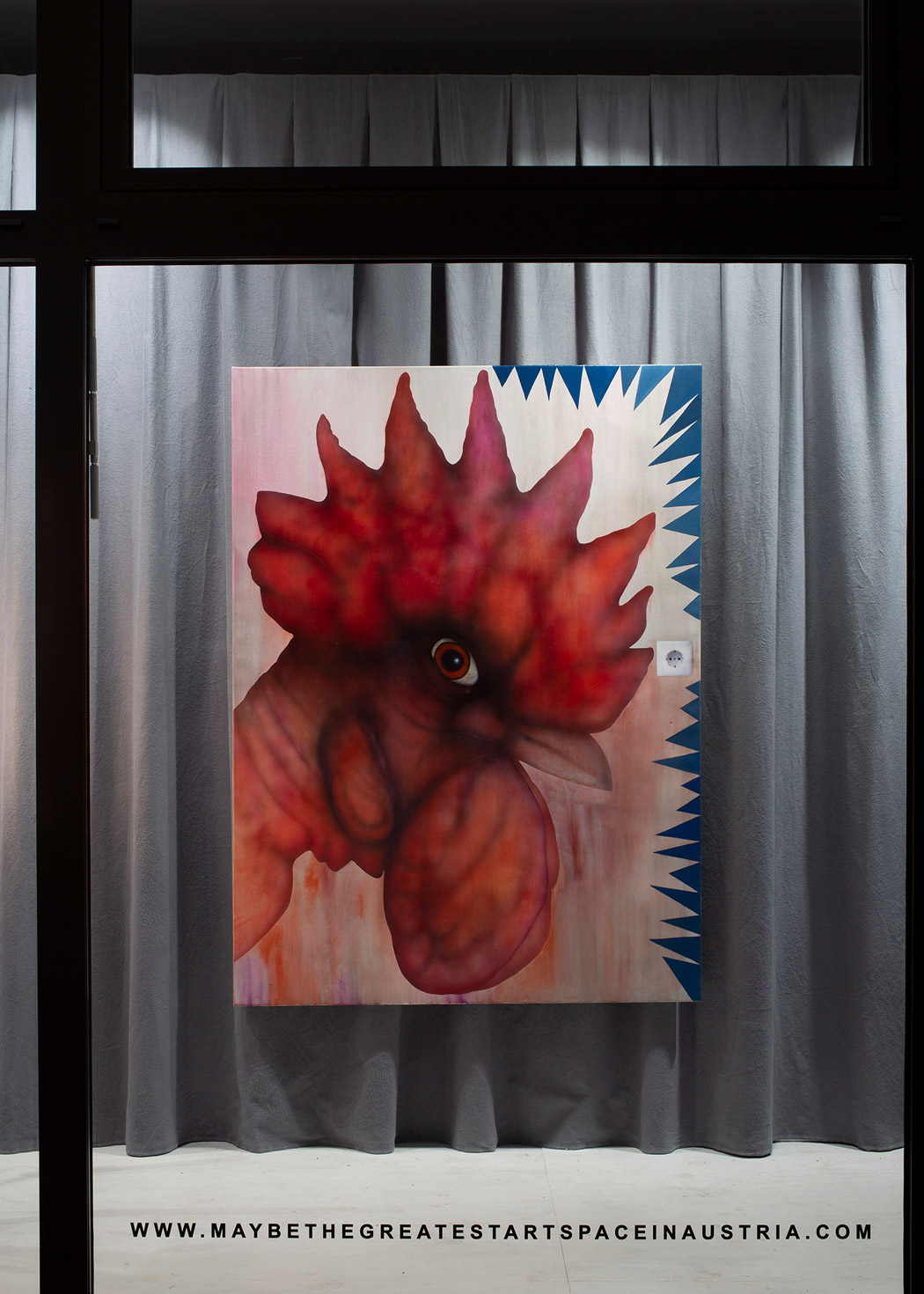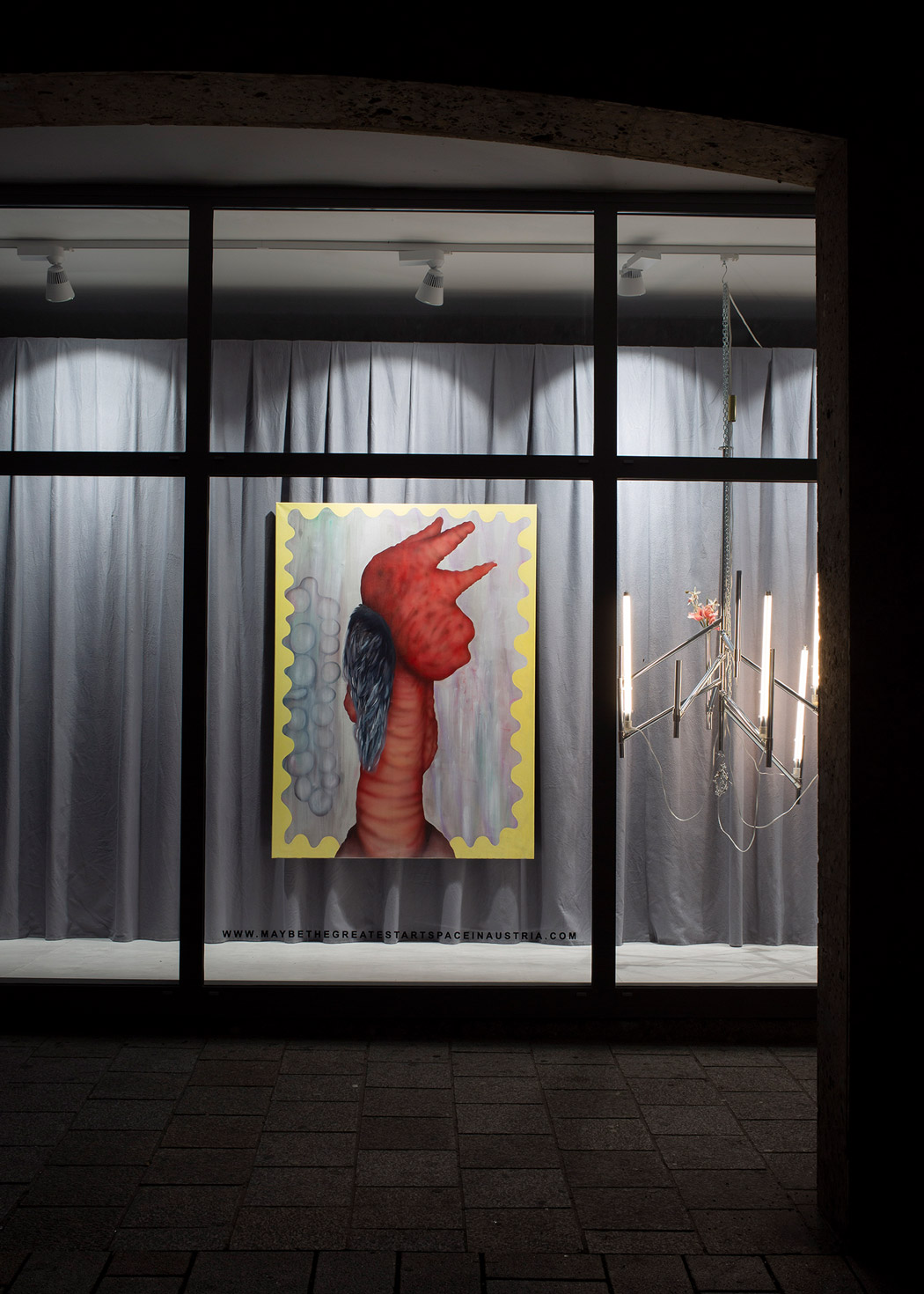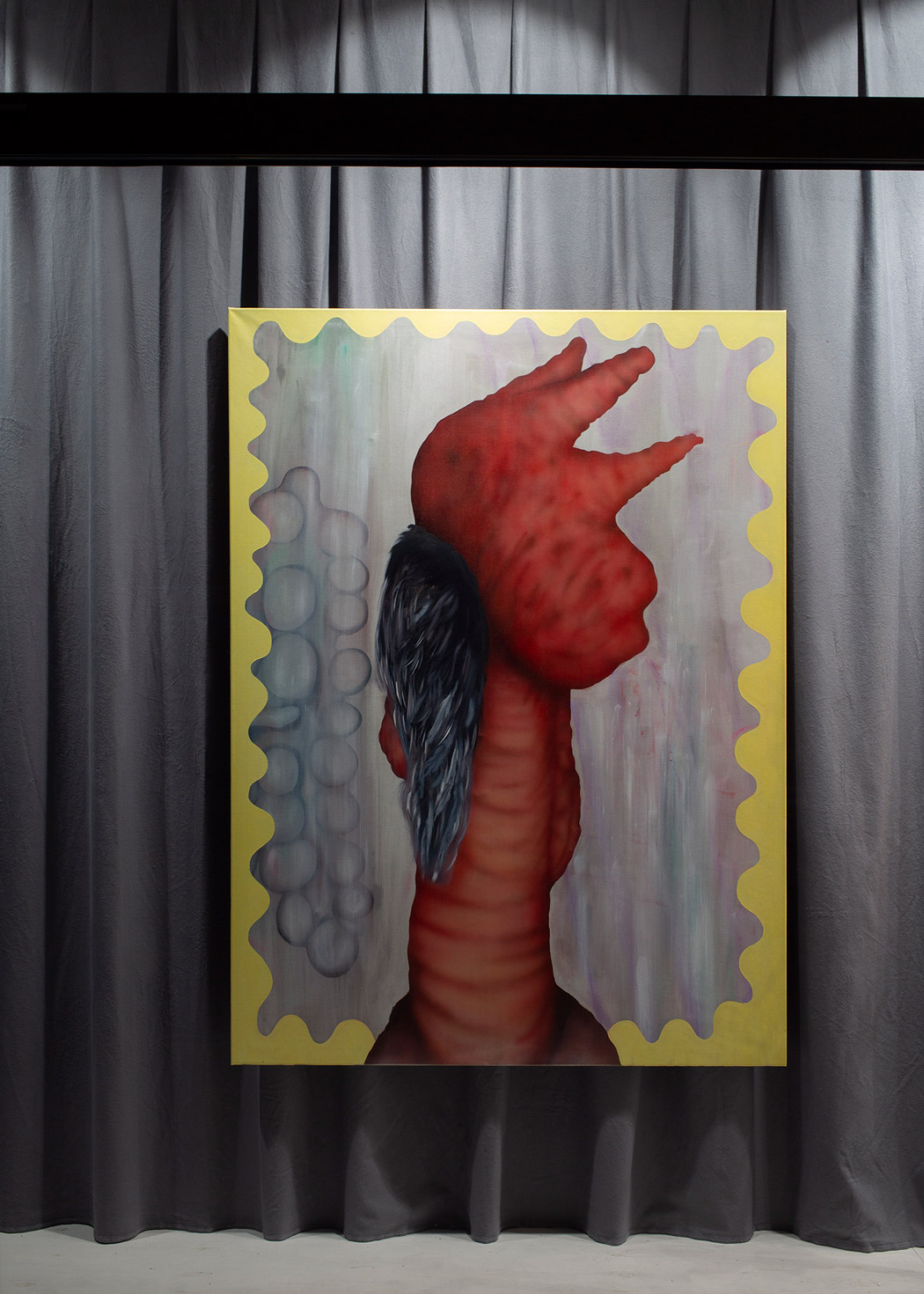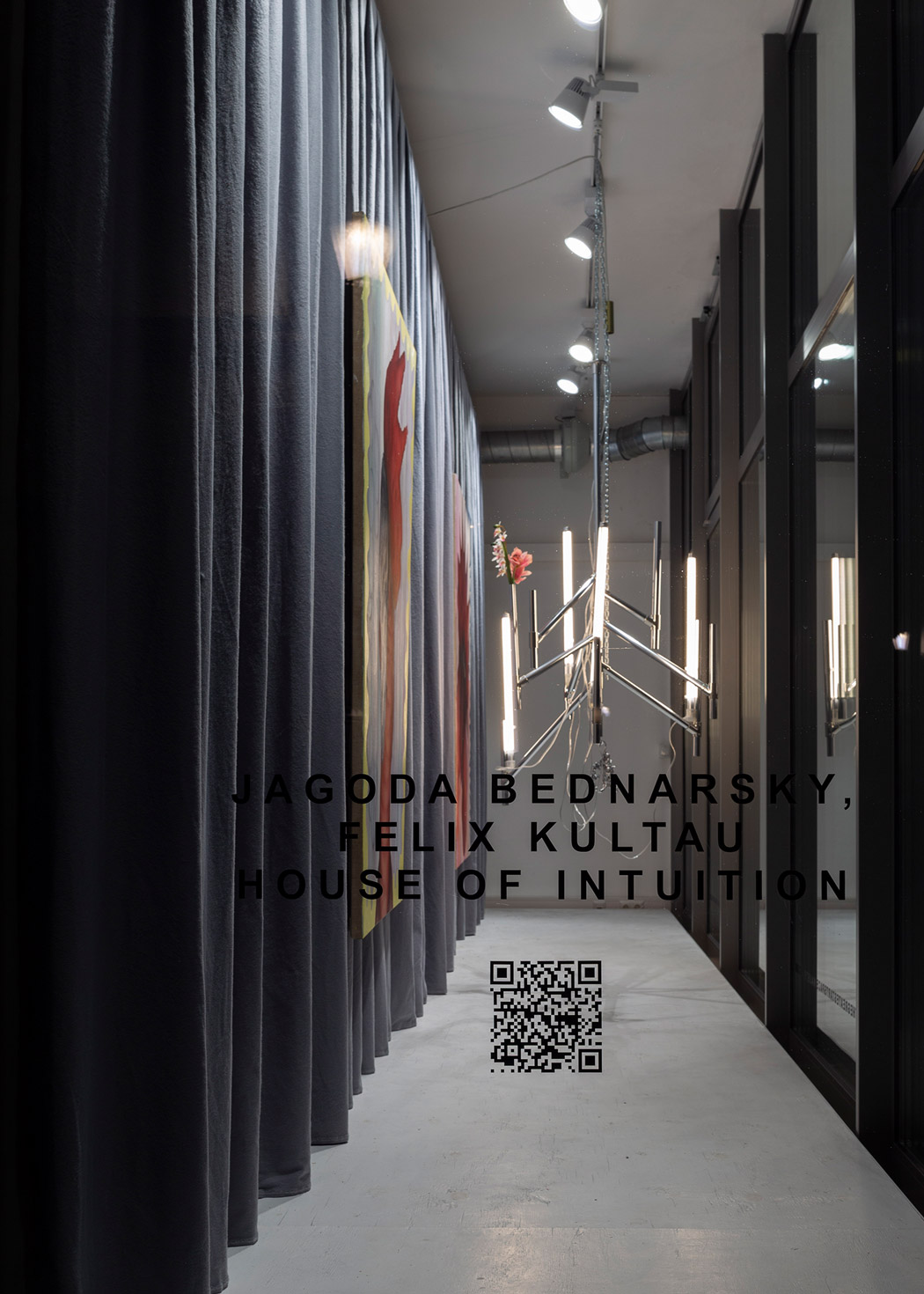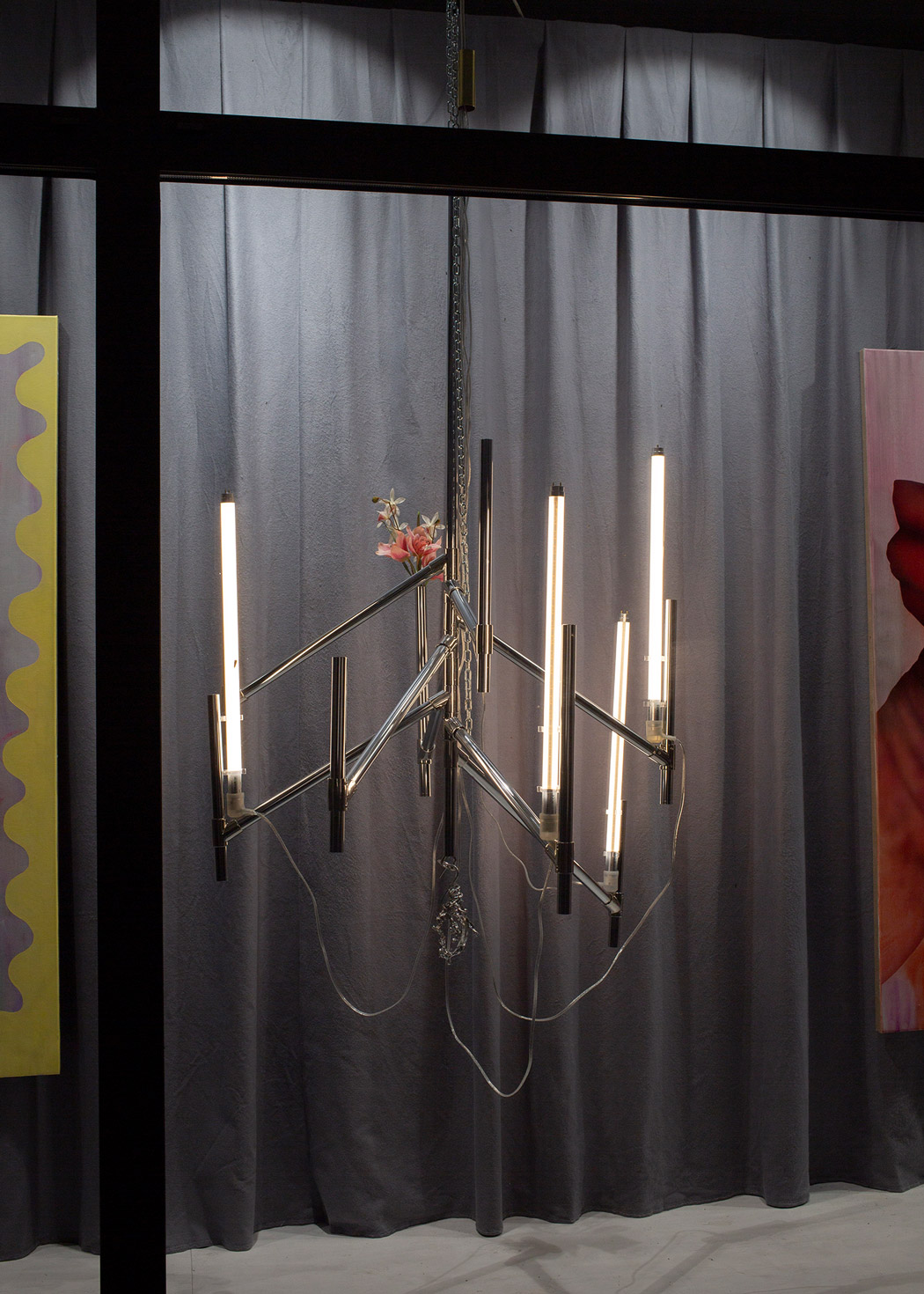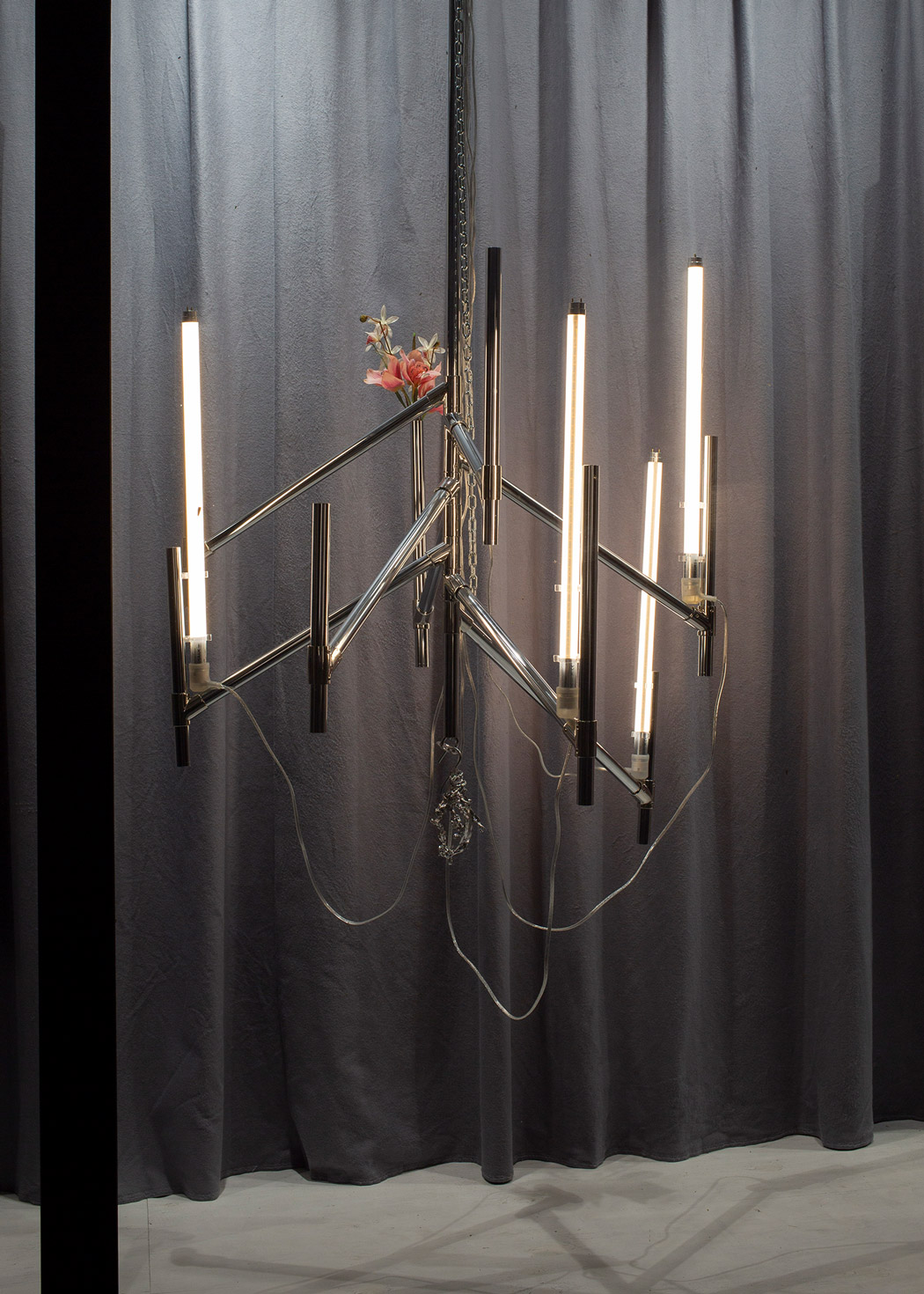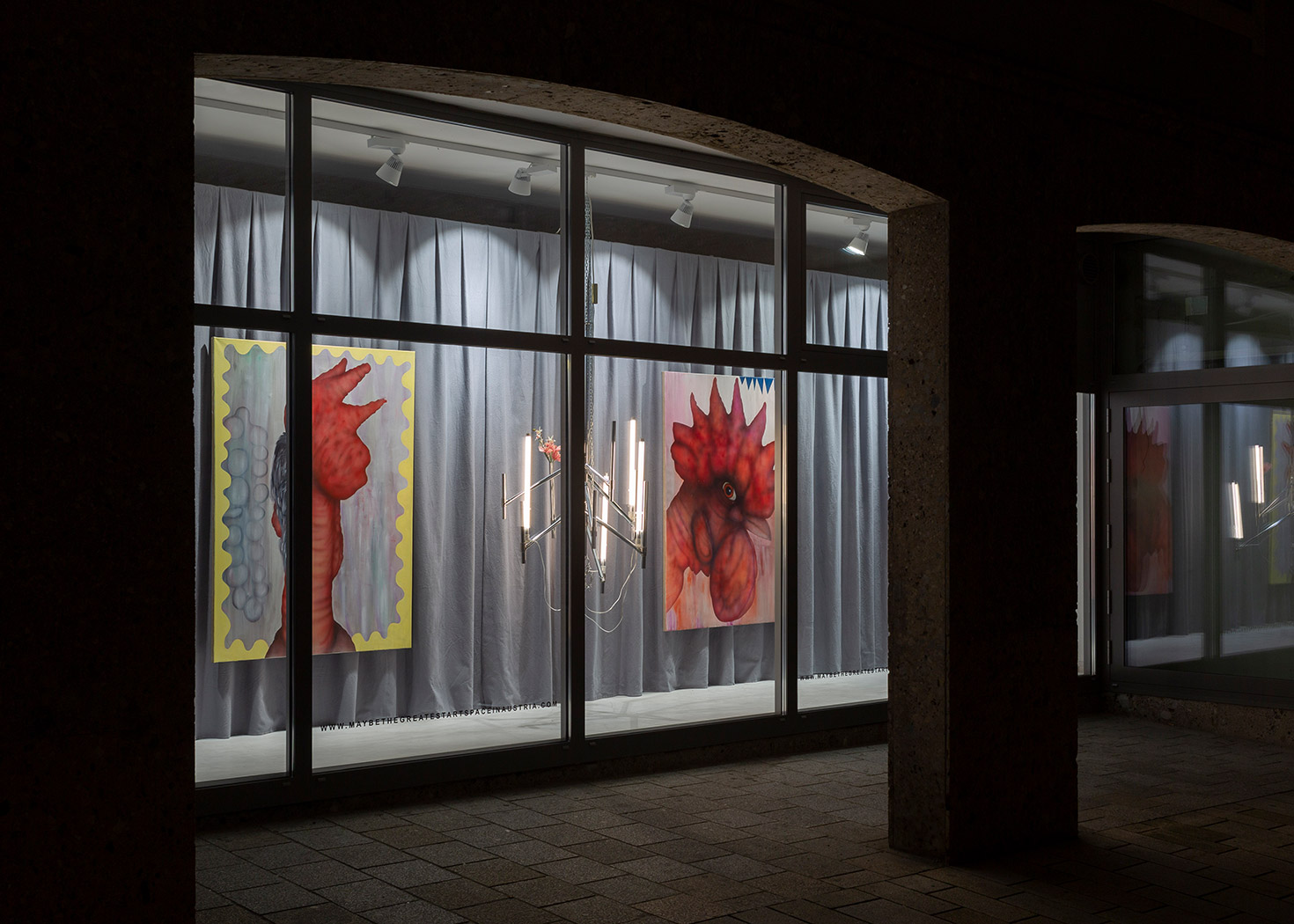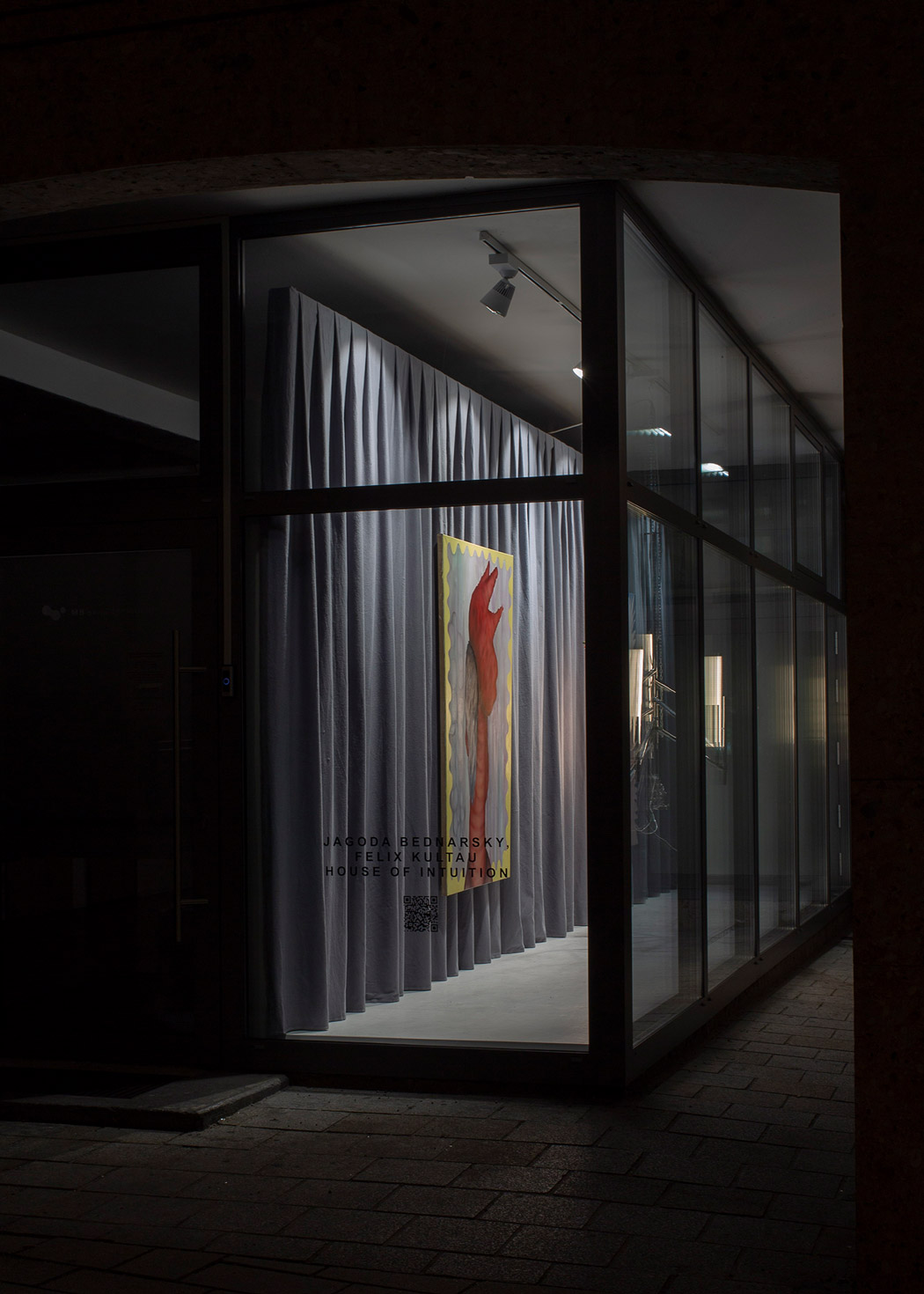JAGODA BEDNARSKY, FELIX KULTAU
HOUSE OF INTUITION
Jagoda Bednarsky
«The world is made of images and images are never-ending. We think in images and all conceivable knowledge communicates itself to us in images. Jagoda Bednarsky's painting feeds on this immense 'archive' of past and possible, impossible, invented and actual images. She delves into history and brings it into the present, but with a view to the future... Her tying-together is a re-tying-together of the images she appropriates and makes her own.
What is taken as a given, she takes apart and reassembles in a new and open way. Applying a kind of skilful and playfully permissive combinatorics, she creates her paintings from a multitude of prefabricates and quoted motifs that have already been pictorialized; and these are idiosyncratic and changeable, fantastic, touching, sensual and absurd.
What you see is obviously never that which you initially thought it was. Apparently unambiguous references elude us and become indecipherable in the fabric of overlapping image textures. It is only in the interplay of motifs, colours and gestures that Jagoda Bednarsky's references gradually begin to reveal themselves. For, somewhere between the found pre-images and their highly calculated 'post'-images, she creates something new that updates history.
This ënewí is her present tense, her sensibility, her experience ñ be it the 'shadowland' of motherhood, (ësymphonic' breast pumps included); doubting self-images and psycho-physical wellness fads; voyeurism; flirtatious masquerades and Art Deco magazines; clichÈs about female roles or sealed book objects with enticing titles such as "J. Bednarsky" or second volumes, without it even being clear what the first one was about.
As reflexive as she is poetic, Jagoda Bednarsky speculates in her paintings about a world of images that is sometimes incomprehensible. Out of "disorder" she creates, through her painterly "repetition of an order" (Jorge Luis Borges), that which may allow us to see and understand a little more with time.» Christian Malycha
Felix Kultau
«Felix Kultau's works are not defined by a fixation on media. The labels that have been valid for centuries - painting, sculpture, photography etc. - come adrift in his praxis and that of many other artists of his generation, in favor of new contentual and emotional impulses. Conclusions about the multifacetedness of his concerns can only be drawn with regard to the material he employs.
Behind his series of light boxes, for example, lies the universal notion to rob the displays of their content, to expose them in terms of form, in order to sensitize the view of society to their manipulative character. According to Magdalena Kröner they become "longing displays" or even "desire machines" . The former term is an appropriate description of their affective conveyance of "Habenwollen" (after Wolfgang Ullrich), an insatiable appetite in our liberal consumer capitalism. Thereby, however, the spatial dimension of the objects gets left out. They are not captured in two-dimensionality like exemplary advertising displays, handy screens, mirrors or billboards. The second term, "desire machines", comes closer to its significance as a generator and, precisely in a Bauhaus year, opens up associations to works which cross disciplines: amongst others, to the living machine of Le Corbusier. Produced serially, and striving for the greatest possible economy, the Unités d’Habitation such as Kultau's works are characterized by an inherent manipulation of industrial mass merchandise.» Andrea Kopranovic
Exhibition duration: 4.6. - 6.8.2021

